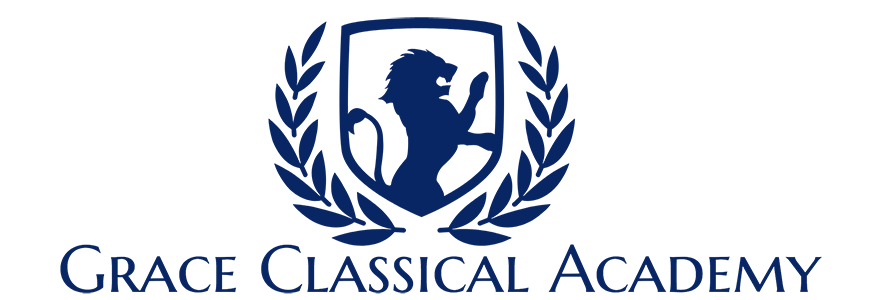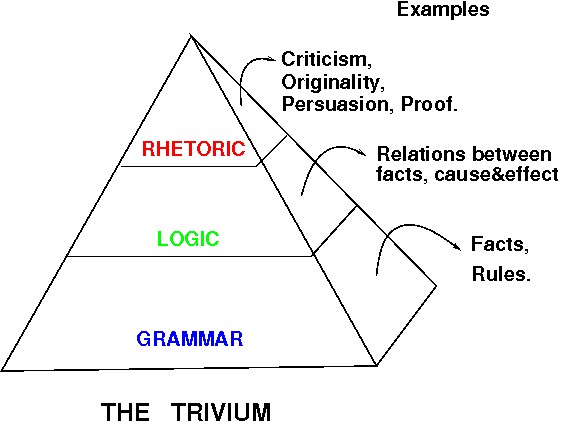trivium: a group of studies consisting of grammar, rhetoric, and logic.
Classical education is tailored to predictable stages of cognitive development. The three stages of the Trivium correspond to the elementary, middle and high school grades.
GRAMMAR
During the Grammar stage (roughly corresponding to elementary school), students capitalize on their God-given ability to memorize facts. They learn the building blocks of knowledge in many areas, especially Bible, History, Geography, Science, English Grammar, Latin, Math and Fine Arts. They learn through chanting, rhymes, singing and other techniques. The heart of the Grammar stage curriculum is Latin.
LOGIC
As children transition to the Logic stage (roughly Junior High), they begin to question what they have been told and to look for relationships between areas of knowledge. Instruction is focused on helping students to construct logically consistent arguments, the relationships between ideas, and building on the facts they memorized in the Grammar stage.
RHETORIC
When young adults begin to grapple with the limitations of logic and reason, they transition to the Rhetoric stage (roughly High School). Now, students learn to express their beliefs with style and grace. Studying the Great Books (literature), theology, and the philosophies that shaped Western civilization equips students to become established in a God-centered worldview.
“For the sole end of education is simply this: to teach men how to learn for themselves; and whatever instruction fails to do this is effort spent in vain.” Dorothy Sayers
Latin and Greek
Throughout our program we emphasize language. We want our students to pursue wisdom by learning how to write and speak with clarity and eloquence. Latin and Greek teach students to think clearly about very complex subjects, and they introduce students to beauty and excellence. They are not “practical” languages like Spanish or sign language; instead, they cultivate the mind and soul. Our students learn Latin as a tool for learning everything else worth learning.
In her well-known speech, “The Lost Tools of Learning,” Dorothy Sayers wrote, “I will say at once, quite firmly, that the best grounding for education is the Latin grammar. I say this, not because Latin is traditional and mediaeval, but simply because even a rudimentary knowledge of Latin cuts down the labor and pains of learning almost any other subject by at least fifty percent. It is the key to the vocabulary and structure of all the Teutonic languages, as well as to the technical vocabulary of all the sciences and to the literature of the entire Mediterranean civilization, together with all its historical documents.”
To learn more about classical education:
The Lost Tools of Learning by Dorothy Sayers
Five Different Approaches to Homeschooling by Heather Sanders for Pioneer Woman
Cheryl Lowe answers the question Why Latin?
Books:
The Well-Trained Mind by Susan Wise-Bauer (especially the first two chapters)
Shepherding a Child’s Heart by Tedd Tripp and Age of Opportunity by Paul David Tripp
Recovering the Lost Tools of Learning or The Case for Classical Christian Education by Douglas Wilson
Ten Ways to Destroy the Imagination of Your Child by Anthony Esolen

